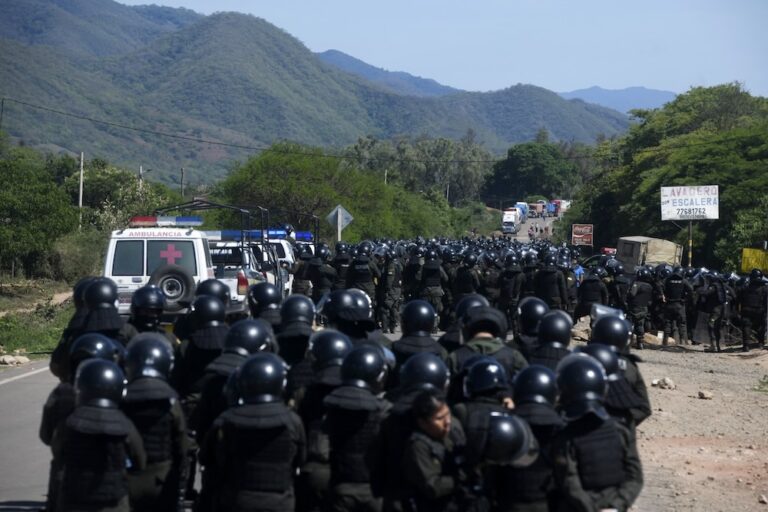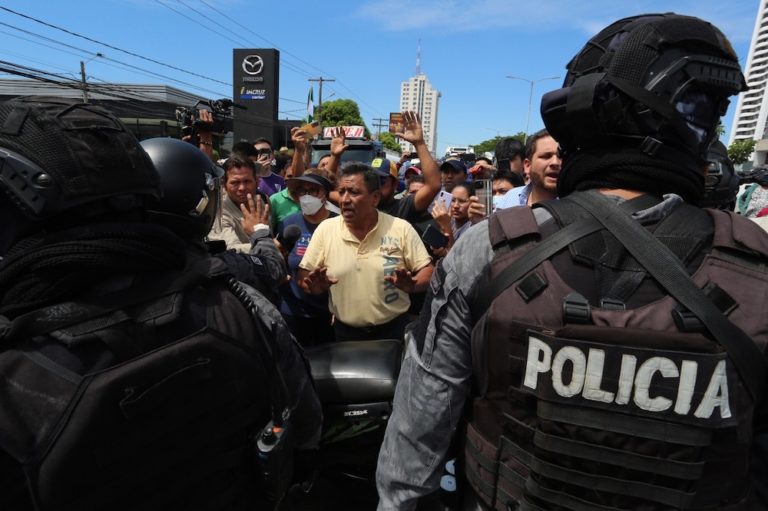In a letter to Minister of the Interior Walter Guiteras, RSF expressed its “serious concern” over the repeated attempts to thwart press freedom that have occurred in the last few weeks. Robert Ménard, the organisationâs secretary-general, requested “emphatically” that the minister “take the necessary measures so that the Bolivian security forces stop putting pressure on […]
In a letter to Minister of the Interior Walter Guiteras, RSF expressed its “serious concern” over the repeated attempts to thwart press freedom that have occurred in the last few weeks. Robert Ménard, the organisationâs secretary-general, requested “emphatically” that the minister “take the necessary measures so that the Bolivian security forces stop putting pressure on journalists and the media.” RSF also requested that an investigation be opened into the threats received by the journalists of the PAT-Canal 39 television station and the “Presencia” newspaper, and an investigation into the source of the bomb threat received by the newspaper.
On 13 April 2000, the editorial staff of “Presencia” received a call informing them that a bomb had been planted in their offices. Gloria Eyzaguirre, director of information, and reporter Jaime Buitrago stated that they and members of their families had received death threats. The newspaper had published a series of articles about statements made by Mario Diodatto – who is accused of organising clandestine gambling halls- about his links with certain spheres of power. According to the editorial staff, the threats could also have originated from paramilitary groups heir to the dictatorship and which are hostile to the newspaperâs editorial content.
Meanwhile, since 10 April, correspondent Oswaldo Rioja, the board, and the editorial staff of PAT-Canal 39 in Cochabamba also received threats. PAT-Canal 39 had broadcast images of the army repression against the demonstrations in Cochabamba. On the previous evening, the radio stations Chaka, Radio Ondas del Titicaca and Radio Omazuyos de Achacachi were occupied by the army and ordered to suspend their programming. The three radio stations had been reporting on the violence occurring in the Lake Titicaca region. On 8 April, a power blackout occurred in Cochabamba (the cause of which was attributed to the army) silencing the cityâs radio and television stations for three hours while a state of emergency was declared by the government. On 17 March, Ximena Vasques, photographer for “Presencia”, was assaulted by police while she covered a strike in La Paz.
On 8 April, the government declared a state of emergency in response to a social protest movement which was started by peasant organisations, and later joined by student associations. Since the demonstrations began, six people have been killed, 74 wounded and another 92 have been questioned.


